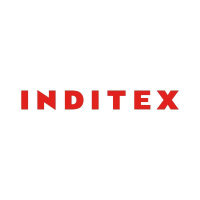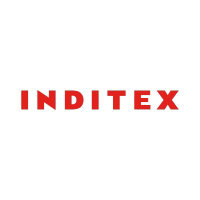
Industria de Diseno Textil SA
MAD:ITX


Utilize notes to systematically review your investment decisions. By reflecting on past outcomes, you can discern effective strategies and identify those that underperformed. This continuous feedback loop enables you to adapt and refine your approach, optimizing for future success.
Each note serves as a learning point, offering insights into your decision-making processes. Over time, you'll accumulate a personalized database of knowledge, enhancing your ability to make informed decisions quickly and effectively.
With a comprehensive record of your investment history at your fingertips, you can compare current opportunities against past experiences. This not only bolsters your confidence but also ensures that each decision is grounded in a well-documented rationale.
Do you really want to delete this note?
This action cannot be undone.

| 52 Week Range |
41.13
57.22
|
| Price Target |
|
We'll email you a reminder when the closing price reaches EUR.
Choose the stock you wish to monitor with a price alert.
This alert will be permanently deleted.
Industria de Diseno Textil SA





In the bustling town of Arteixo, Spain, Industria de Diseno Textil SA, more widely recognized as Inditex, charts a remarkable course through the global fashion industry. Established in 1985 by Amancio Ortega, the company has redefined the way garments reach consumers through its innovative "fast fashion" model. By maintaining an extensive network of stores, predominantly under its flagship brand Zara, Inditex accelerates the journey from design sketches to retail shelves in record time, often a matter of weeks, compared to the months-long cycles typical in traditional fashion houses. This nimble approach, supported by centralized logistics and close relationships with suppliers, enables Inditex to respond swiftly to the ebb and flow of fashion trends, keeping the pulse of consumer desires at its fingertips.
The commercial engine of Inditex is powered not just by speed but also by a unique strategy that pivots around customer engagement and experience. Their integrated operations combine in-house design, a flexible supply chain, and a keen data-driven understanding of customer preferences. Stores act both as points of sale and data collection hubs, allowing Inditex to gather real-time insights on what’s selling and what’s not, feeding back into their design and production processes. This continuous loop between customer feedback and product offering crafts a competitive edge, allowing Inditex to curate collections that are both timely and aligned with market demand. By operating in this manner, Inditex not only captures the imagination of fashion enthusiasts worldwide but also cultivates a sturdy financial foundation that fuels its global expansion, keeping it at the forefront of the retail fashion industry.

In the bustling town of Arteixo, Spain, Industria de Diseno Textil SA, more widely recognized as Inditex, charts a remarkable course through the global fashion industry. Established in 1985 by Amancio Ortega, the company has redefined the way garments reach consumers through its innovative "fast fashion" model. By maintaining an extensive network of stores, predominantly under its flagship brand Zara, Inditex accelerates the journey from design sketches to retail shelves in record time, often a matter of weeks, compared to the months-long cycles typical in traditional fashion houses. This nimble approach, supported by centralized logistics and close relationships with suppliers, enables Inditex to respond swiftly to the ebb and flow of fashion trends, keeping the pulse of consumer desires at its fingertips.
The commercial engine of Inditex is powered not just by speed but also by a unique strategy that pivots around customer engagement and experience. Their integrated operations combine in-house design, a flexible supply chain, and a keen data-driven understanding of customer preferences. Stores act both as points of sale and data collection hubs, allowing Inditex to gather real-time insights on what’s selling and what’s not, feeding back into their design and production processes. This continuous loop between customer feedback and product offering crafts a competitive edge, allowing Inditex to curate collections that are both timely and aligned with market demand. By operating in this manner, Inditex not only captures the imagination of fashion enthusiasts worldwide but also cultivates a sturdy financial foundation that fuels its global expansion, keeping it at the forefront of the retail fashion industry.
Sales Growth: Inditex reported sales growth of 1.6% to €18.4 billion, with 5.1% growth in constant currency, reflecting solid demand despite a challenging market.
Profitability: Net income rose 0.8% to €2.8 billion and gross margin reached 58.3%, with strong cost control and execution helping maintain profitability.
Trading Update: Store and online sales in constant currency grew 9% between August 1 and September 8, showing momentum into the second half.
Gross Margin Outlook: Management expects a stable gross margin for the full year, within +/- 50 basis points.
Continued Expansion: The company opened stores in 35 markets and continues global expansion across all brands, including active projects in the US and UK.
Capex and Logistics: Inditex is on track with its logistics expansion plan and expects ordinary capital expenditure of €1.8 billion for 2025.
Management

Oscar García Maceiras is a prominent Spanish executive known for his role as the CEO of Industria de Diseño Textil SA, commonly known as Inditex, which is one of the world's largest fashion retailers and the parent company of brands such as Zara, Pull&Bear, Massimo Dutti, Bershka, Stradivarius, Oysho, Uterqüe, and Zara Home. García Maceiras joined Inditex in 2021, bringing with him a wealth of experience from various sectors. Before his role at Inditex, he had a distinguished career in the banking and legal industries. With a background in law, he has held significant positions in major companies, providing him with an extensive understanding of corporate governance and management. As CEO of Inditex, García Maceiras focuses on enhancing the company's digital transformation, sustainability, and expansion strategies. Under his leadership, Inditex continues to adapt to the evolving retail landscape, emphasizing a more sustainable business model and the integration of digital technology in its operations. His appointment as CEO is seen as part of Inditex's strategic plans to strengthen its global presence and maintain its competitive edge in the fast-paced fashion industry. García Maceiras is recognized for his leadership skills and his ability to steer complex organizational changes effectively.

García Maceiras joined Inditex in 2021, bringing with him a wealth of experience from various sectors. Before his role at Inditex, he had a distinguished career in the banking and legal industries. With a background in law, he has held significant positions in major companies, providing him with an extensive understanding of corporate governance and management.
As CEO of Inditex, García Maceiras focuses on enhancing the company's digital transformation, sustainability, and expansion strategies. Under his leadership, Inditex continues to adapt to the evolving retail landscape, emphasizing a more sustainable business model and the integration of digital technology in its operations.
His appointment as CEO is seen as part of Inditex's strategic plans to strengthen its global presence and maintain its competitive edge in the fast-paced fashion industry. García Maceiras is recognized for his leadership skills and his ability to steer complex organizational changes effectively.

Amancio Ortega Gaona is a renowned Spanish business magnate, best known as the founder of the Inditex fashion group, which is most famous for its chain of Zara clothing and accessories shops. Born on March 28, 1936, in Busdongo de Arbas, Spain, Ortega is hailed as one of the most successful and influential figures in the global fashion industry. Ortega began his career in the clothing industry in the early 1960s while working as a delivery boy for a local shirtmaker. Observing the inefficiencies and high costs associated with traditional manufacturing and distribution, he nurtured a vision to streamline these processes. With an entrepreneurial spirit, Ortega founded Confecciones Goa in 1963, which produced quilted bathrobes. In 1975, he opened the first Zara store in La Coruña, Galicia, Spain, alongside his then-wife, Rosalía Mera. Zara's business model was revolutionary in the fashion industry, emphasizing quick turnaround of the latest styles at affordable prices, which came to be known as "fast fashion." This model spurred the rapid expansion of Zara and, subsequently, the entire Inditex group, which Ortega formally established in 1985. Under Ortega's leadership, Inditex grew to become the world's largest fashion retailer, encompassing several brands including Massimo Dutti, Pull&Bear, Stradivarius, and Bershka, among others. Ortega remained actively involved in Inditex until he stepped down as chairman in 2011, although he maintains a significant influence as its largest shareholder. Throughout his career, Amancio Ortega has been noted for his reserved and private nature, avoiding the public eye in stark contrast to many of his peers. Despite his low profile, Ortega has consistently ranked among the wealthiest individuals worldwide, as listed in various global rich lists.

Ortega began his career in the clothing industry in the early 1960s while working as a delivery boy for a local shirtmaker. Observing the inefficiencies and high costs associated with traditional manufacturing and distribution, he nurtured a vision to streamline these processes. With an entrepreneurial spirit, Ortega founded Confecciones Goa in 1963, which produced quilted bathrobes.
In 1975, he opened the first Zara store in La Coruña, Galicia, Spain, alongside his then-wife, Rosalía Mera. Zara's business model was revolutionary in the fashion industry, emphasizing quick turnaround of the latest styles at affordable prices, which came to be known as "fast fashion." This model spurred the rapid expansion of Zara and, subsequently, the entire Inditex group, which Ortega formally established in 1985.
Under Ortega's leadership, Inditex grew to become the world's largest fashion retailer, encompassing several brands including Massimo Dutti, Pull&Bear, Stradivarius, and Bershka, among others. Ortega remained actively involved in Inditex until he stepped down as chairman in 2011, although he maintains a significant influence as its largest shareholder.
Throughout his career, Amancio Ortega has been noted for his reserved and private nature, avoiding the public eye in stark contrast to many of his peers. Despite his low profile, Ortega has consistently ranked among the wealthiest individuals worldwide, as listed in various global rich lists.
Ignacio Izuzquiza Fernández is known for his role at Industria de Diseño Textil, S.A., commonly known as Inditex, a major Spanish multinational clothing company. He holds a significant position in the company, being responsible for financial oversight and strategic financial planning. Inditex is notably the parent company of popular fashion brands like Zara, Massimo Dutti, Pull&Bear, and Bershka, among others. Fernández's role involves ensuring the financial health and regulatory compliance of the company, contributing to its global expansion and market strategy. Known for his expertise in financial management and corporate strategy, he plays a crucial part in Inditex's decisions regarding investments, budgeting, and overall fiscal guidance. His work supports the company's reputation for financial stability and growth, aiding in its competitive position in the fast-paced retail industry.
Fernández's role involves ensuring the financial health and regulatory compliance of the company, contributing to its global expansion and market strategy. Known for his expertise in financial management and corporate strategy, he plays a crucial part in Inditex's decisions regarding investments, budgeting, and overall fiscal guidance. His work supports the company's reputation for financial stability and growth, aiding in its competitive position in the fast-paced retail industry.

James O'Shaughnessy does not appear to be a known executive officer or significant figure associated specifically with Industria de Diseno Textil SA (commonly known as Inditex), the parent company of brands like Zara, Pull&Bear, and Massimo Dutti. Therefore, I do not have information on him in relation to this company. If there are other details or companies you are referring to, please provide additional context. Otherwise, the response is FALSE.

Javier Monteoliva Díaz is the General Counsel and Secretary of the Board at Inditex (Industria de Diseño Textil S.A.), one of the world's largest fashion retailers. His role involves overseeing the company's legal department and ensuring compliance with legal and regulatory requirements. Monteoliva Díaz plays a pivotal role in the corporate governance of the company, advising the board of directors on legal matters and ensuring that decisions align with corporate policy and regulations. His expertise contributes significantly to Inditex's strategic direction and operational execution, particularly in navigating complex international markets and maintaining the company's reputation.

Begoña López-Cano Ibarreche serves as the Chief Human Resources Officer (CHRO) at Industria de Diseño Textil SA, commonly known as Inditex. Inditex is one of the world’s largest fashion retailers, renowned for its store chains like Zara, Massimo Dutti, and Pull&Bear, among others. Begoña López-Cano has extensive experience in the field of human resources and has been influential in managing and developing the workforce strategies for the company. Her role includes overseeing talent management, learning and development, and fostering a positive work culture across the global Inditex network. Throughout her time at the company, she has played a critical role in aligning the HR function with the strategic goals of the organization, ensuring that the group remains agile and responsive in the fast-paced fashion industry. Her leadership is noted for promoting diversity, sustainability, and employee engagement within the company.


Abel López Cernadas is an executive at Industria de Diseño Textil S.A. (Inditex), one of the world's largest fashion retailers, known for its flagship brand Zara among others. He has gained significant recognition within the company for his contributions to its financial and administrative sectors. Abel López Cernadas serves as Inditex's Chief Financial Officer (CFO) and is responsible for overseeing the financial operations of the entire group. His role involves strategic financial planning, risk management, and ensuring the financial health and integrity of the company. Under his leadership, Inditex continues to maintain its strong financial performance and operational efficiency, contributing to its position as a leader in the global fashion industry.

Mr. Marcos López García is a notable figure associated with Industria de Diseño Textil SA, commonly known as Inditex, one of the world's largest fashion retailers. Inditex is renowned for its brands, including Zara, Massimo Dutti, Pull&Bear, and Bershka. Marcos López García has held significant positions within the company, which has contributed to the operational and strategic successes of the group. His expertise in management and strategy has been instrumental in navigating the complexities of the retail fashion industry, particularly with the fast-paced, trend-driven approach that Inditex is known for. While specific details about his early career and personal background may not be extensively publicized, his influence within Inditex is marked by a focus on supply chain efficiency, sustainability initiatives, and digital transformation, areas that are crucial to maintaining the company's competitive edge in the global market. Inditex's business model, which emphasizes rapid production cycles and quick turnaround from design to retail, has been a significant area of focus in his work. Overall, Marcos López García's contributions have been vital in steering Inditex towards sustained growth and innovation in the fashion retail sector.
Marcos López García has held significant positions within the company, which has contributed to the operational and strategic successes of the group. His expertise in management and strategy has been instrumental in navigating the complexities of the retail fashion industry, particularly with the fast-paced, trend-driven approach that Inditex is known for.
While specific details about his early career and personal background may not be extensively publicized, his influence within Inditex is marked by a focus on supply chain efficiency, sustainability initiatives, and digital transformation, areas that are crucial to maintaining the company's competitive edge in the global market. Inditex's business model, which emphasizes rapid production cycles and quick turnaround from design to retail, has been a significant area of focus in his work.
Overall, Marcos López García's contributions have been vital in steering Inditex towards sustained growth and innovation in the fashion retail sector.
Lorena Alba Castro is an executive known for her role at Industria de Diseño Textil SA, commonly known as Inditex, which is the parent company of several major fashion brands, including Zara, Massimo Dutti, Pull&Bear, and Bershka. Within Inditex, she holds a significant position that involves overseeing logistics, a crucial aspect of the company's operations given its global reach and retail presence. Alba Castro's work in logistics has played a vital role in maintaining Inditex's reputation for efficiency and in-time supply chain management, which is essential for fast fashion where trends are constantly changing. Her leadership in this area supports the company in keeping its inventory fresh, adapting quickly to fashion trends, and managing the complex logistics of distributing products worldwide. She is recognized for her expertise in optimizing supply chain processes, implementing innovative logistical strategies, and leveraging technology to improve operational efficiency. Her contributions help Inditex maintain a competitive edge in the fast-paced fashion industry, ensuring products are available to customers in a timely manner without overstocking or product delays. Her role is pivotal in sustaining the dynamic and responsive logistics systems that Inditex is known for.
Alba Castro's work in logistics has played a vital role in maintaining Inditex's reputation for efficiency and in-time supply chain management, which is essential for fast fashion where trends are constantly changing. Her leadership in this area supports the company in keeping its inventory fresh, adapting quickly to fashion trends, and managing the complex logistics of distributing products worldwide.
She is recognized for her expertise in optimizing supply chain processes, implementing innovative logistical strategies, and leveraging technology to improve operational efficiency. Her contributions help Inditex maintain a competitive edge in the fast-paced fashion industry, ensuring products are available to customers in a timely manner without overstocking or product delays. Her role is pivotal in sustaining the dynamic and responsive logistics systems that Inditex is known for.













